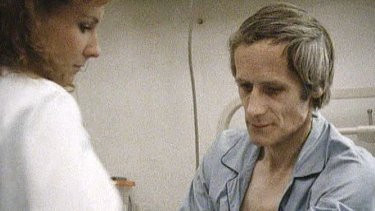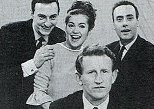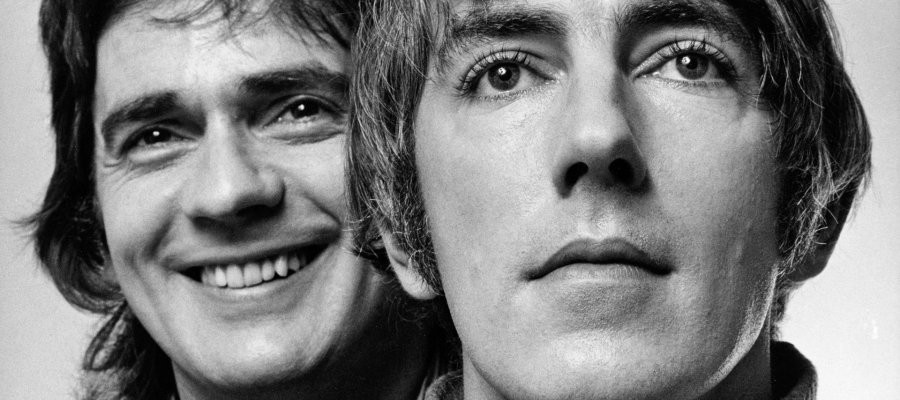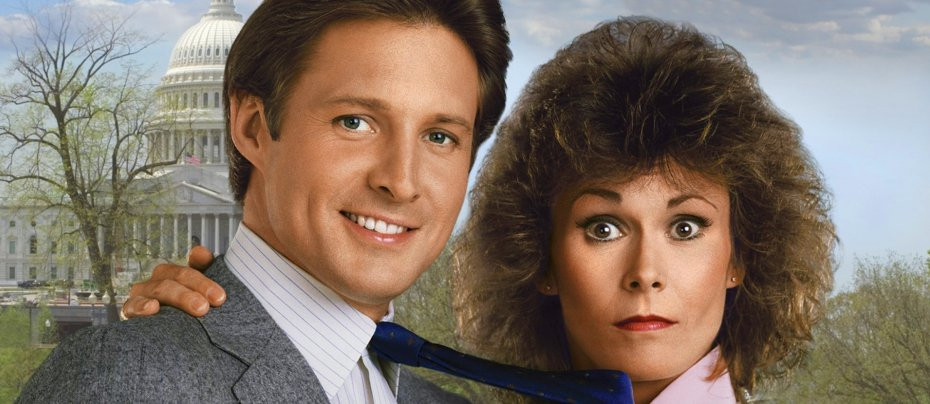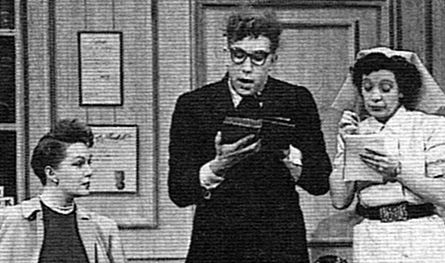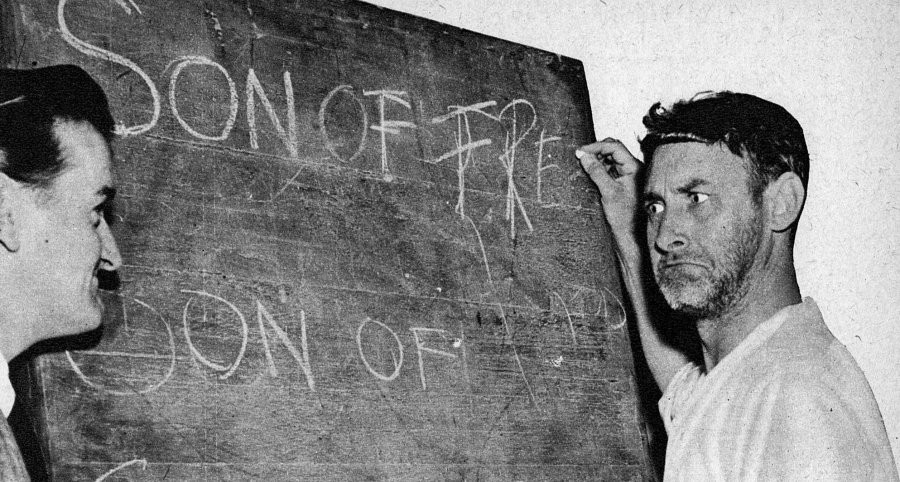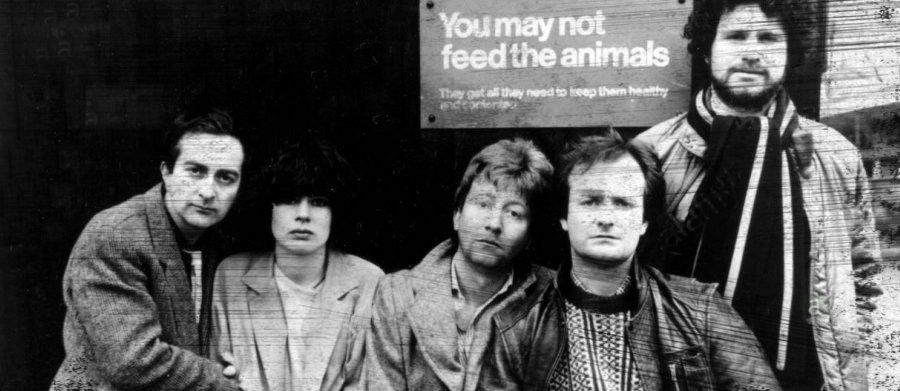
Who Dares Wins
1983 - United KingdomReview: John Winterson Richards
This is a review of the early 1980s Channel 4 comedy sketch show, not the current "reality show" which is more officially SAS: Who Dares Wins. Both are of course trading on the motto of the Special Air Service, but with very different intentions.
The 1980s show was intended to be subversive, and sneering at the SAS was a declaration that no one was off limits. The dramatic hostage rescue by the SAS that ended the London Iranian Embassy siege in 1980 was then a recent memory. In 1982 ‘The Regiment’ had won fresh laurels in the Falklands War, even if the full details were not known by the general public. The SAS was therefore the epitome of British pride at that moment. Indeed, 'Who Dares Wins' was also the title of a feature that came out in 1982 which might be the most right wing film made in Britain since the Fifties - not that there is much competition for that title. (Starring Lewis Collins from The Professionals, the plot has armed militants from the Campaign for Nuclear Disarmament(!) being humiliated in debate by the US Secretary of State before being wiped out by the SAS. It did not get good reviews from the critics, but Ronald Reagan and Al Haig are reported to have liked it. Perhaps they thought it was a documentary.)
The television show's use of the motto may have been a deliberate reaction to that. Its "logo" was a pastiche of the SAS Regimental Crest but with a flying pig in place of the winged dagger.
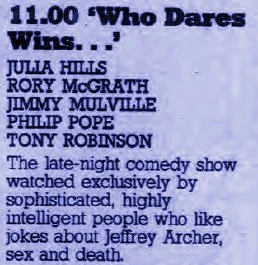
It appeared at the end of an opening titles sequence that said a lot about the target audience. A drunk weaves his way home from the pub, past cast members sleeping in the street, dumping a Chinese takeaway on the pavement, and staggering into a dirty room to switch on the television which shows the flying pig. It was an "on the nose" declaration that this was deliberate "post-pub" programming - still something of a novelty in the 1980s when most channels still switched off fairly early on the assumption that people would want to get up for work next day.
It was part of a competition to find the natural successor to Not the Nine O'Clock News, which had recently ended on BBC. Other competitors included the Beeb's own Three of A Kind and A Kick Up the Eighties, as well as ITV's Alfresco with Robbie Coltrane, Ben Elton, Emma Thompson, Stephen Fry, Hugh Laurie, and Siobhan Redmond.
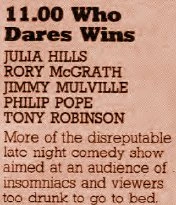
It was all but that inevitable that Channel 4 should enter that race, and that its entry should be edgier. Channel 4 had a deliberate strategy of building a reputation as the edgy channel, not least in comedy, where it had declared its intent by broadcasting 'Five Go Mad in Dorset' from 'The Comic Strip' on its launch night.
So, where Not the Nine O'Clock News could have been watched by the whole family, Who Dares Wins was aimed more at the people portrayed in its titles sequence, young adults - at least adult in years, if not necessarily in maturity - and more "adult" in its material, another early Channel 4 obsession. Channel 4 was also more overtly "political," which in British television always means left wing. The thought occurs that if Channel 4 had really wanted to be different, it could have interpreted "political" as meaning something other than exclusively left wing, but predictably they took it as meaning more overtly left wing.
The Who Dares Wins team seem to have had no problems with that. The best known, Tony Robinson, was a Labour Party activist, and the others play the relentlessly anti-Thatcher scripts with gusto.
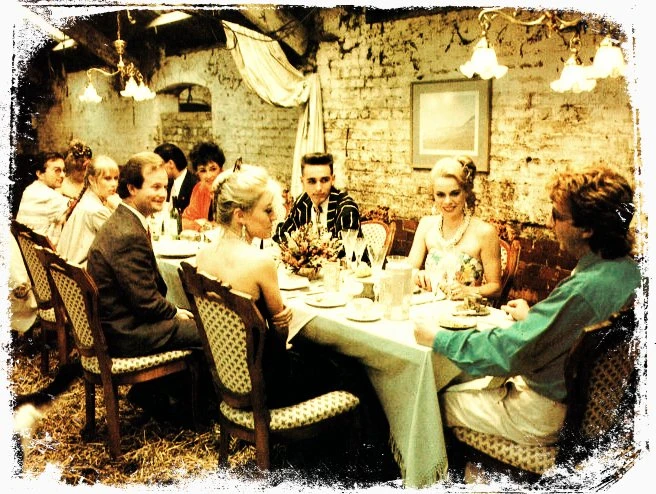
Where would early Eighties British comedy have been Margaret Thatcher? In the social circle that produced Who Dares Wins it was simply taken for granted that one could say absolutely anything about her so long as it was negative. Nothing was too vicious, too hateful, or too misogynistic. Much of it was crude and obvious. One sketch has a husband confessing that his secret sexual fantasy is that his wife role plays as Mrs Thatcher - so she walks all over him.
It is worth asking if anyone can imagine a similar sketch being made about a male politician? However, some of the other material, while making no pretence of balance, was at least witty and perceptive. A well observed satire of the Conservative Party Political Broadcasts of the time has an elderly lady walking down dingy "Labour Alley" and then bright, cheerful "Conservative Way" - where, when a couple of punks turn up from "Labour Alley," she simply blasts them away with a shotgun. The style and concept are so close to the real thing that one can imagine a wry grin of recognition from Tim Bell and the Saatchi Brothers. They might even have been taking notes.
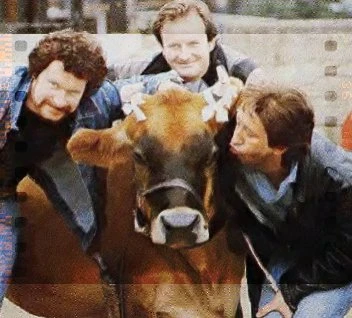
Most of the satire was in fact social rather than political but this also "pushed the envelope." The sketch that is probably best remembered is an update of 'The Emperor's New Clothes' that has Robinson appearing absolutely naked in front of a live studio audience under the impression that he is wearing a very lightweight suit. When he notices there appears to be a rip in the back, two smarmy salesmen assure him it is a vent.
Happily they dissuade him from cutting off the dangly bit in the front.
The studio audience, a well established practice in the United States, was then something of an innovation in British television comedy. While some sketches were performed live in front of it, others, including quite a few filmed on location, were prerecorded and played back. The effect was not always as smooth as it might have been with a wholly prerecorded show.
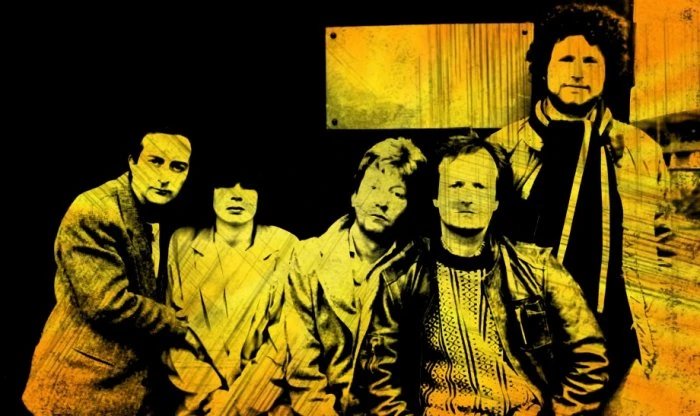
Jimmy Mulville, Rory McGrath, and Philip Pope, the core team, were not, at that point, experienced performers. They were essentially writers who had travelled the well trodden path from Oxbridge to the BBC. There they had contributed to scripts for various shows, including Not the Nine O'Clock News and, in the case of Mulville and McGrath, its direct heir Alas Smith and Jones. Mulville had a producer credit on the latter, stimulating an interest that was to play an increasingly important role in his future career. Pope is a talented composer, writing both theme tunes and pastiches of popular music for several other shows at the same time. While working on Who Dares Wins, he also wrote the music of the notorious 'Chicken Song' for Spitting Image on ITV. Although it seems to have influenced their work, none of the three can really be said to have been part of the "alternative comedy" scene of the early Eighties.
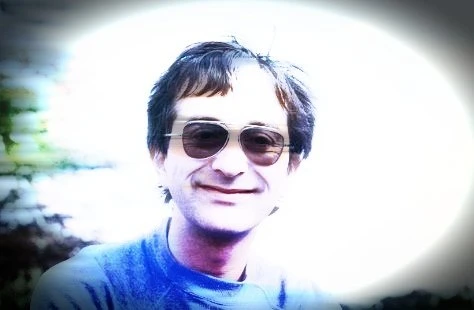
Two professional actors with theatrical backgrounds were brought in to cover for the three writer-performers' lack of experience in front of an audience. Tony Robinson was recognisable to the target market his role as Baldrick in the first series of The Black Adder, which had been broadcast not long before. That first series had not been a great critical success and Baldrick was not yet the legendary idiot he was to become, but there was enough potential in the show and the character to mark Robinson as a man to be watch. He used Who Dares Wins as an opportunity to demonstrate his versatility as a comic actor, and in some of the vaguer characters he played in it we can see hints of later incarnations of Baldrick.
The other professional actor was Julia Hills who, as the only woman, got to play all the female parts by default - like Pamela Stephenson in Not the Nine O'Clock News and Tracey Ullman in Three of A Kind. As a result, she faced the broadest challenges and emerged as the most accomplished player. She certainly seems the most comfortable in the live sessions.

It is interesting to compare their subsequent careers. In an ironic move of which Mrs Thatcher would approve, Mulville and McGarth founded their own company, Hat Trick Productions. Both starred, along with Pope, in its first broadcast project, Chelmsford 123. Soon after, they went their separate ways, with Mulville, spending less time in front of the camera, taking Hat Trick to success after success, from Drop the Dead Donkey to Have I Got News For You.
Robinson, of course, transformed the character of Baldrick and turned him into a household name in the subsequent seasons of Blackadder. By way of total contrast, he also developed a surprising second career as a television educator, popularising archaeology as presenter of the fascinating Time Team. He is now Sir Anthony.
As for Hills, although she has had a decent career, she has not achieved the business success of Mulville or Pope, or the public recognition of Robinson or McGrath. She is therefore another case study in how British television excels in finding talented comediennes but is not very good at looking after them.
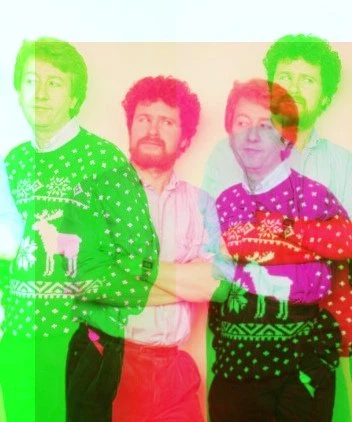
Mention should also be made of the writing staff, who included a lot of contributors to similar shows: British television comedy has always been fairly incestuous and that is particularly true of the Eighties. Apart from Mulville, McGrath, and Pope, the most notable names are Andy Hamilton and Guy Jenkin, who went on to write Drop the Dead Donkey for Hat Trick. For all concerned, Who Dares Wins was a rite of passage rather than a classic in its own right. It was an experiment, parts of which worked and parts of which failed. It had some very funny sketches but also some sour notes. It was soon overtaken by Channel 4's own Saturday Live, fronted by Ben Elton, which had a similar format but a more authentic "alternative comedy" vibe thanks to a very strong list of performers. Who Dares Wins dared a lot but in itself won only occasionally.
Seen this show? How do you rate it?
Seen this show? How do you rate it?
Published on September 8th, 2020. Written by John Winterson Richards for Television Heaven.


